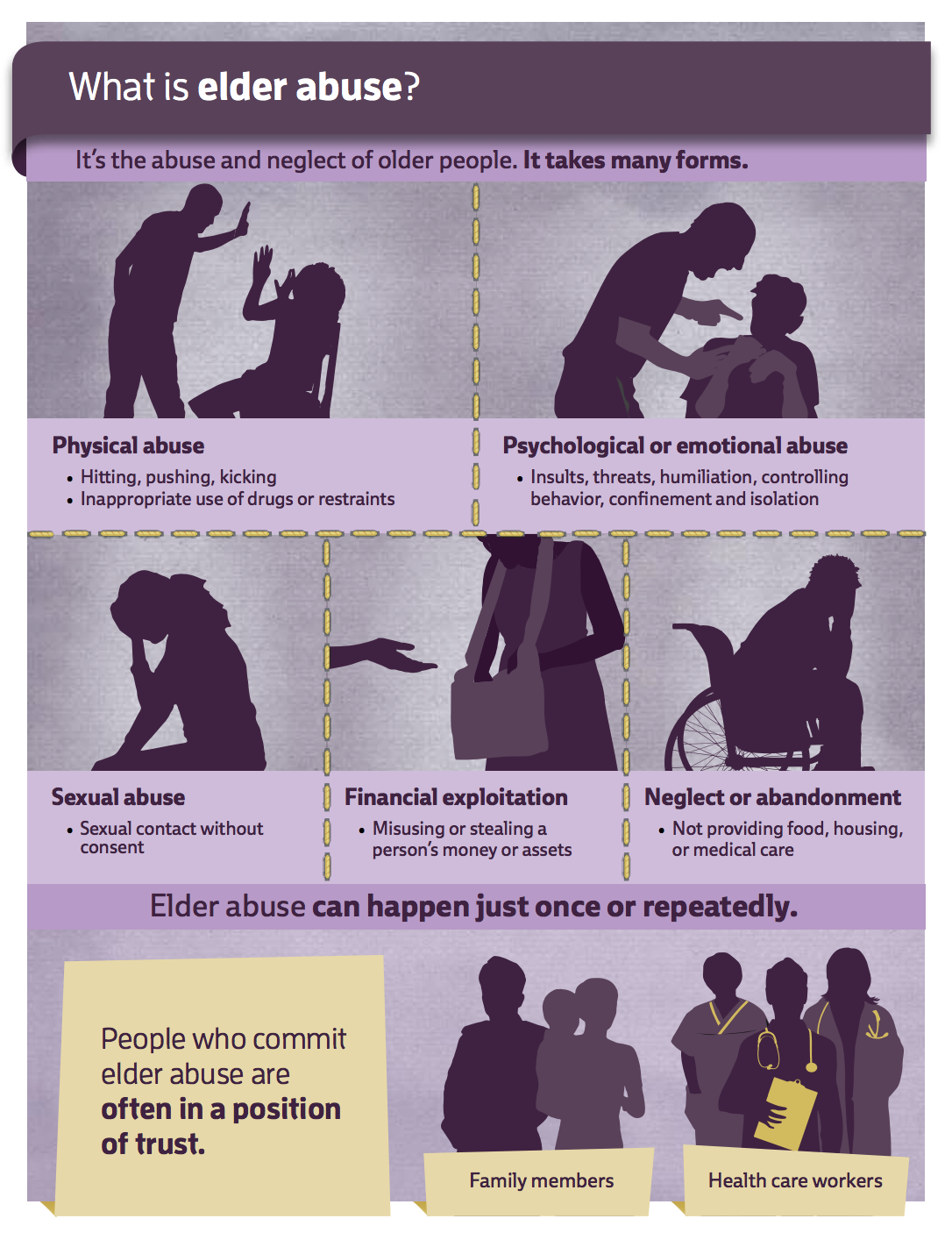(15 June 2021) To mark World Elder Abuse Awareness Day (WEAAD) 2021, June 15th, Age Action reports that their Information Service dealt with 98 contacts from people concerned about elder abuse in 2020 compared to 71 contacts in 2019 – an increase of 38%.
Elder abuse is defined as “a single or repeated act, or lack of appropriate action, occurring within any relationship where there is an expectation of trust which causes harm or distress to an older person or violates their human and civil rights.” There are a number of types of elder abuse, including physical abuse, financial or material abuse, psychological abuse, neglect and acts of omission, sexual abuse and discriminatory abuse. As people become more aware of elder abuse people can call it out and report it.
Coercive Control
Psychological abuse was the most common form of elder abuse discussed with Age Action with a 19% increase in contacts to the Information Service during 2020. Some older people were left in a vulnerable situation by COVID-19 restrictions as contact with wider family and community networks, who would otherwise have supported the older person, was diminished. Age Action heard from family members who thought their loved one was being isolated or controlled by another relative who had stepped in to a caring role during the height of the pandemic.
As a member of the National Safeguarding Advisory Committee, Age Action supports Safeguarding Ireland’s call to expand laws to include the coercive control of another person as a crime in any close adult relationship or setting. Coercive control involves the use of threats, humiliation, intimidation, or assault to make a person dependent, to isolate them in order to exploit and deprive people of their rightful independence.
Call Out Abuse
Age Action supports the message from Safeguarding Ireland to – ‘Call out Abuse’ and report it. People are encouraged to report any safeguarding concerns whether this is about yourself, or someone you know and care about.
If you have a concern about abuse, neglect or coercion there are many different ways to report it, or to receive additional information to assist you in addressing the problem.
Immediate Danger - the Gardaí
If you are experiencing abuse which is placing you or someone you know in immediate danger, you should contact the Gardai at 999 / 112.
If a person is being mistreated but there isn’t an immediate danger, please report it to your local Garda station. Go to www.garda.ie, or click here for a full directory of Garda stations.
Or you can also contact the Garda confidential line at 1800 666 111.
Safeguarding Concerns – HSE Safeguarding and Protection teams
The main provider of services to safeguard in Ireland is the HSE which operates an Adult Safeguarding Policy within older persons services and services for people with disabilities.
The National Safeguarding Office is based in Limerick (safeguarding.socialcare@hse.ie / (061) 461 358) and there are nine regional Safeguarding and Protection Teams covering all community health regions in the country.
The teams are tasked to assess allegations of abuse or neglect and to intervene to address concerns (being mindful of the will and preferences of the adult at risk of abuse).
Financial Abuse
If you have concerns about financial abuse of your social welfare payment, or the social welfare payment of someone you know and care about, you should contact, in confidence: Safeguarding Unit, Department of Social Protection, College Road, Sligo, F91 T384 / safeguarding@welfare.ie / (071) 9193259.
The five major banks and An Post are members of the Banking & Payments Federation Ireland (BPFI), which has a website www.safeguardyourmoney.ie, with tips and advice to help you keep control of your money whatever your circumstances.
Each bank has set up a telephone support service for vulnerable customers. If you have any concern regarding financial abuse, misuse of a joint bank account or agency facility, you should contact the relevant bank.
- AIB: 0818 207 232
- Bank of Ireland: 1800 946 146
- Permanent TSB: 1800 218 000
- KBC Bank: 1800 804 472
- Ulster Bank DAC: 1800 656 001

